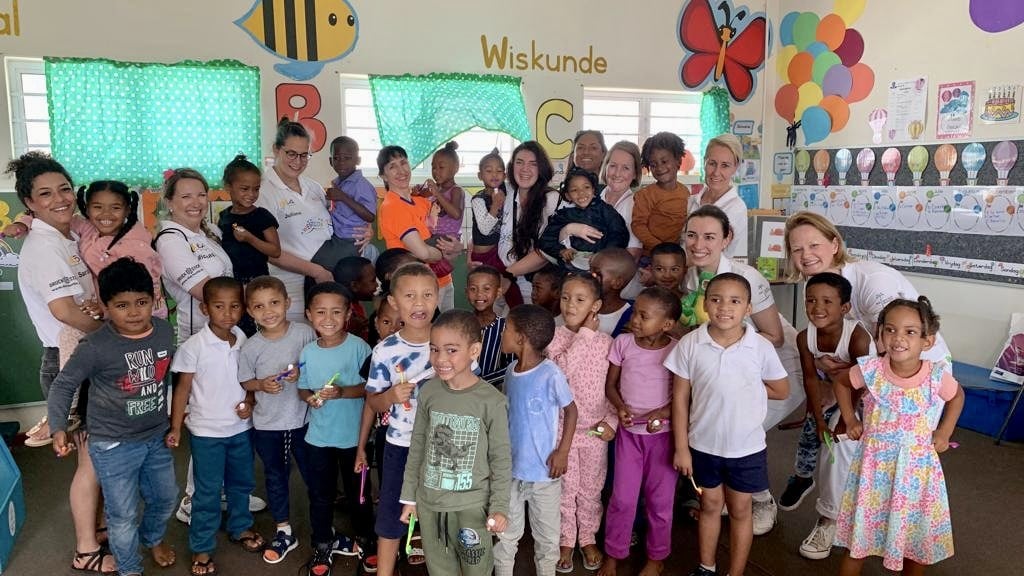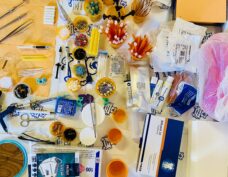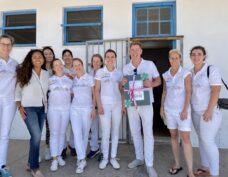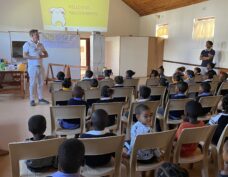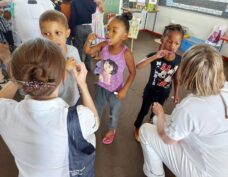26/6/2023
How RSD helps young south africans: German dental professionals dedicated to helping children
When children’s eyes light up, there is great joy at the reunion: for the first time – after a three-year break due to the coronavirus pandemic – the team of the KU64 dental practice in Berlin recently visited the small village of Paternoster again – 160 kilometres north of Cape Town on South Africa’s beautiful west coast.
Since 2009, the German Tooth Angels have worked there for at least one week every year for the little ones.
We already reported – read more:
What the experts had set out to do again: repairing broken teeth and taking precautions to preserve existing tooth structure, i.e.: showing the little ones how proper oral hygiene works, i.e. above all how to brush their teeth properly. There were again educational lectures, which were translated into Afrikaans by a local employee. And the young South Africans also learned how to make their own toothpaste. The Berlin specialists again brought their urgently needed equipment for this purpose, in addition to all kinds of materials, toothbrushes, toothpaste, books and toys.
Their work continues to be completely voluntary, financed exclusively by donations. RSD, in particular, is a big player in this every year, with a generous donation. This is the only way that this aid project with the beautiful name „Westcoast Kids“ can also be organised professionally.
Initially still a little shy and sometimes fearful, the young patients have come to trust their dental helpers over the years and meet them openly and really warmly. This helps the Germans a lot, because especially after the unintentional break of several years, the challenges on the ground were particularly great this year.
In addition to the school children, the Berlin team also took care of the little visitors from two nurseries. Out of all of them, only six were without caries. A total of 119 children were treated. A very common diagnosis: „extremely decayed teeth with deep caries and some teeth not worth preserving“. But often the dental professionals could still really help and save some teeth: root remnants of previously decayed milk teeth were removed, teeth sealed and thus protected from further damage. Many children’s teeth were saved, although they are normally extracted immediately in South Africa. This is also why most children aged three have already lost their milk teeth.
This time, the work of the dental rescuers was made much more difficult by a power cut that lasted several hours each day. Because power generators for such emergencies are not available in the village of Paternoster, treatments had to be interrupted again and again for longer periods of time.
The German helpers also want to come back next year and look after their lovely patients. The people of the village are already looking forward to it and thanked their Berlin friends with a beautiful self-made certificate and a colourful final show with wonderful dance performances.
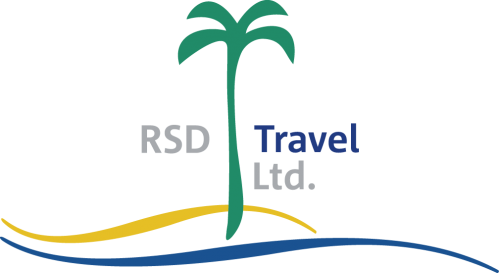
 Travel highlights
Travel highlights
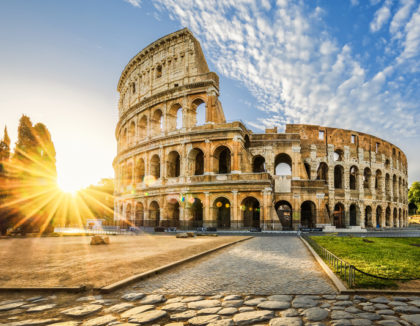 Europe
Europe
 Asia
Asia
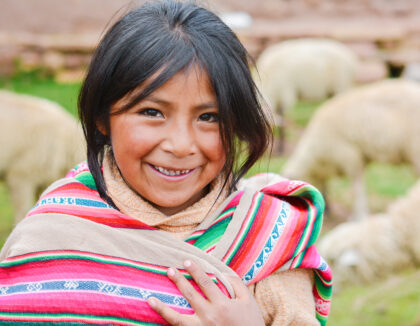 America
America
 Africa
Africa
